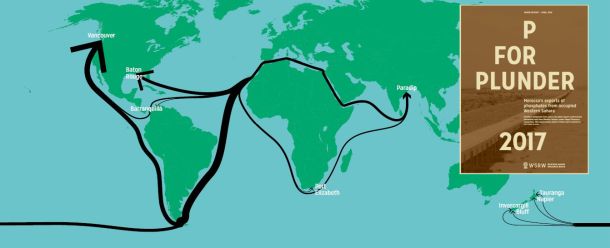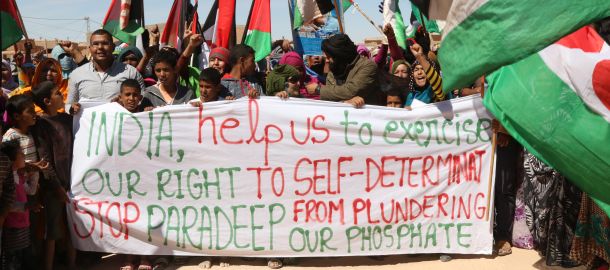
The Belgian branch of German chemical company BASF is not planning further imports from occupied Western Sahara.
Early in October, the branch of Western Sahara Resource Watch in Belgium discovered that a Belgian subsidiary of BASF had imported phosphates from occupied Western Sahara.
On 22nd of October, German former MEP Margot Kessler, together with Western Sahara Resource Watch, wrote to BASF, asking for a clarification regarding the imports of phosphates. The letter requested information on the scope of the BASF imports.
In a reply yesterday, 30 October 2008, the company confirmed having received this shipment, but said they do not expect further imports.
"For the time being, this was an isolated replacement delivery from this territory which we do not expect to be repeated in the future", wrote Mrs. Anne Forst from BASF sustainability center in a mail to WSRW.
"A part of BASF's phosphate demand is covered by Moroccan phosphate delivered by Office Chérifien des Phosphates (OCP). OCP has been a reliable supplier of phosphate from mines in the Kingdom of Morocco for over 20 years. In spring 2008, OCP contacted us because of a supply shortage at the Moroccan mine from which BASF usually receives the phosphate. OCP offered a temporary replacement order with phosphate in an alternative quality from a different mine operated by OCP in the Western Sahara region, which we accepted", Forst wrote.
The BASF representative says that the OCP has assured in an "expert opinion" that the OCPs operations in Western Sahara are to be beneficial locally. OCP has been running operations in occupied Western Sahara since shortly after Moroccan forces moved into Western Sahara on November 6th 1975.
"OCP provided an expert opinion which was able to demonstrate to BASF that OCP's operations in the Western Sahara are beneficial through job creation for the local people, investments in the local infrastructure, community engagement, and economic stimulus. We are fully confident that the operations of OCP at Boucraa and the purchase of the replacement delivery were consistent with international law.", Horst wrote.
Since taking over the plant in 1975, OCP has replaced most of the Sahrawi workers with Moroccan settlers, who have been moved into the territory in violation of the Geneva Conventions.
New report: Western Sahara phosphate trade halved
The export of phosphate rock from occupied Western Sahara has never been lower than in 2019. This is revealed in the new WSRW report P for Plunder, published today.
New report on Western Sahara phosphate industry out now
Morocco shipped 1.93 million tonnes of phosphate out of occupied Western Sahara in 2018, worth an estimated $164 million, new report shows. Here is all you need to know about the volume, values, vessels and clients.
New report on contentious Western Sahara phosphate trade
Morocco shipped over 1.5 million tonnes of phosphate out of occupied Western Sahara in 2017, to the tune of over $142 million. But the number of international importers of the contentious conflict mineral is waning, WSRW's annual report shows.
New report on global phosphate trade from occupied Western Sahara
Over 200 million dollars worth of phosphate rock was shipped out of occupied Western Sahara last year, a new report from WSRW shows. For the first time, India is among the top importers.



